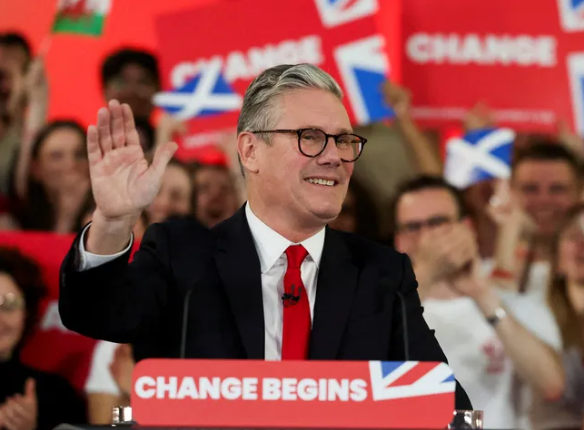Keir Starmer’s Comments at Commonwealth Summit Spark Controversy Over Colonial Reparations and Climate Change Priorities
UK Prime Minister Keir Starmer’s recent remarks at the Commonwealth summit in Samoa have ignited controversy. Starmer expressed his desire to avoid “long discussions about reparations” tied to Britain’s colonial past, emphasizing the importance of focusing on “future-facing challenges” like climate change. While acknowledging the atrocities of slavery, he prioritized addressing current global issues over debates on reparatory justice.
However, his stance has drawn significant criticism. Eric Phillips from the Guyana Reparations Committee argued that Starmer’s comments dismiss the historical pain caused by colonialism. Similarly, Professor Verene A. Shepherd from the University of the West Indies stated that addressing colonial legacies is still crucial. Critics worry that Starmer’s approach could weaken the UK’s position within the Commonwealth, especially as nations like Guyana and Barbados continue to push for recognition and reparations.
The introduction of a UK trade center, aimed at strengthening economic ties within the Commonwealth, further complicates the discourse. Some experts suggest that Starmer’s comments risk alienating key partners, particularly those advocating for reparations. Nations like Guyana and Barbados have long called for the UK to acknowledge and compensate for its colonial past, and sidestepping these demands could harm diplomatic relations.
For instance, Guyana has been vocal about the need for reparations due to the exploitation and human rights abuses that occurred during British colonial rule. Barbados has also raised its voice, demanding formal recognition and reparations for the legacies of colonialism and slavery. As these countries continue to push for justice, ignoring or downplaying their concerns may hinder the UK’s efforts to strengthen its influence within the Commonwealth.
Starmer’s emphasis on modern global issues like climate change is undoubtedly important. However, critics argue that failing to properly address the reparations debate risks damaging the trust and diplomatic ties the UK shares with Commonwealth nations. Advocacy groups supporting reparatory justice have already called on the UK government to reconsider its stance, signaling that the debate over colonial reparations will likely intensify in the coming months.
While Starmer stresses the need to focus on present-day challenges, his reluctance to engage in reparations discussions has sparked a wider conversation about how historical debts should be addressed. Many believe that acknowledging and rectifying the past is essential for building stronger and more equitable relationships within the Commonwealth.
This controversy indicates that the UK’s efforts to reframe its role within the Commonwealth may face significant obstacles. How the British government handles the reparations issue will likely play a critical role in shaping the future of UK-Commonwealth relations, as trust and diplomacy hang in the balance.
Thank you for taking the time to read this article! Your thoughts and feedback are incredibly valuable to me. What do you think about the topics discussed? Please share your insights in the comments section below, as your input helps me create even better content.
If you enjoyed this post and want to stay updated with more informative and engaging articles, don’t forget to hit the subscribe button! I’m committed to bringing you the latest insights and trends, so stay tuned for upcoming posts.
Wishing you a wonderful day ahead, and I look forward to connecting with you in the comments!
Keir Starmer, Commonwealth summit, colonial reparations, UK trade center, climate change priorities, Eric Phillips, Guyana Reparations Committee, Verene A Shepherd, colonial legacy, UK and Commonwealth relations, reparations debate, Britain’s colonial past
